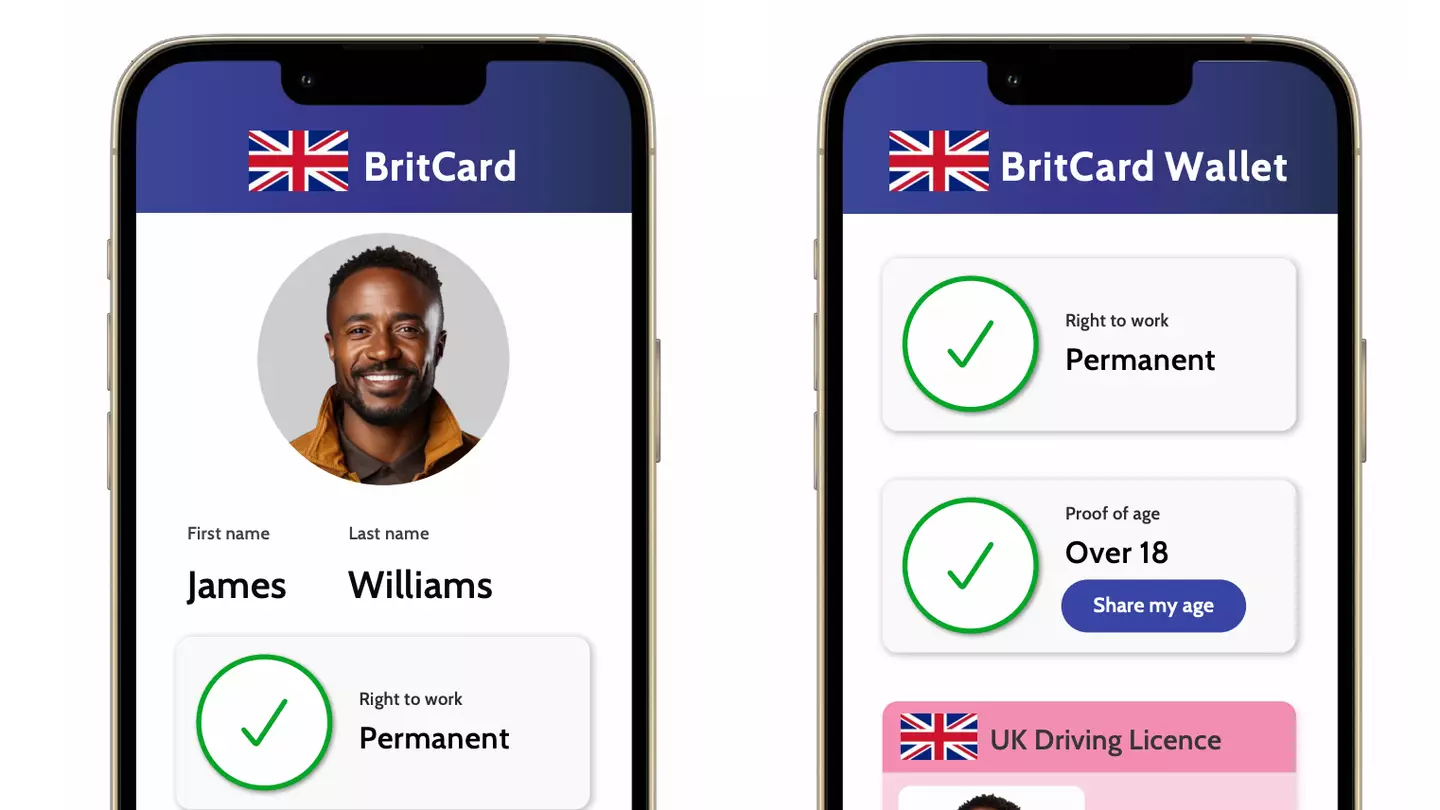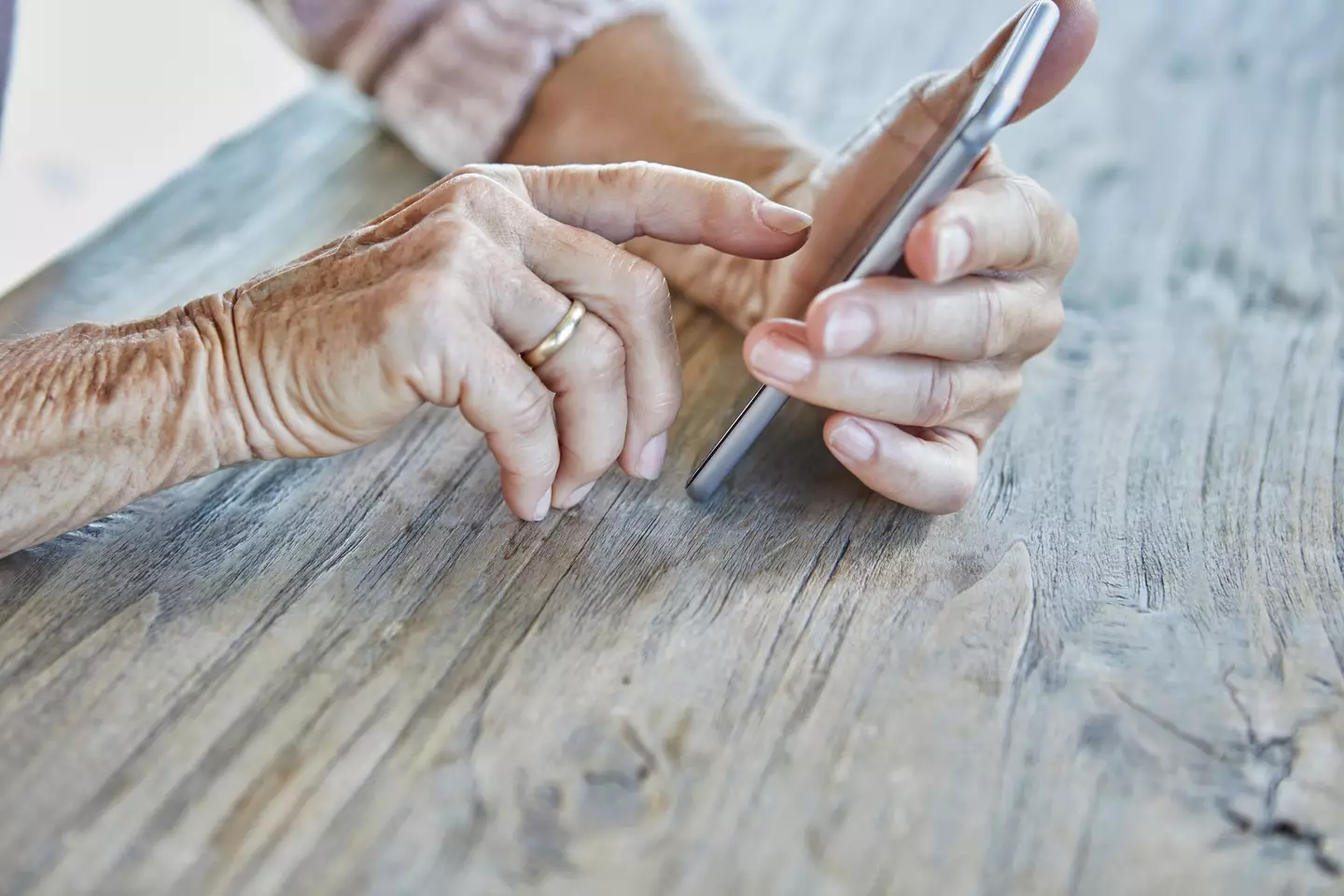
The UK government is set to introduce digital ID cards to 'tackle illegal migration' with the official announcement set to be made by Labour Prime Minister Keir Starmer during a speech later today (26 September).
The controversial new digital ID, dubbed a 'BritCard', will enable the verification of a citizen’s right to live and work in the UK and become mandatory as proof of the right to work under the plans, but people will not be required to carry or asked to produce it.
"I know working people are worried about the level of illegal migration into this country. A secure border and controlled migration are reasonable demands, and this government is listening and delivering," Starmer said. "Digital ID is an enormous opportunity for the UK. It will make it tougher to work illegally in this country, making our borders more secure.
"And it will also offer ordinary citizens countless benefits, like being able to prove your identity to access key services swiftly – rather than hunting around for an old utility bill."
Advert
However, the BritCard proposal has since sparked major backlash from citizens and fellow politicians alike, who have shared concerns over cybersecurity, civil liberties and digital illiteracy.
What is BritCard?

Labour Together explains that BritCard is 'a set of digital verifiable credentials that would be stored on a user’s smartphone and used to securely prove their migration status'.
The digital ID would be the authoritative proof of identity and residency status in the UK and include name, date of birth, and a photo, as well as information on nationality and residency status.
The plans envision ID cards being stored on devices in the same way as contactless payment cards or the NHS App.
How would the BritCard work?
The BritCard leaflet states that the digital ID could be instantly verified using a free verifier app that employers and landlords could download.
It would be mandatory, universal and free of charge. It would be accessed via the Gov.UK Wallet, with One Login as the identity verification layer.
Why is the BritCard being introduced, and what are the proposed benefits?
According to Starmer, BritCard would make right-to-work and right-to-rent checks 'more secure and effective'.
The leaflet claims: "Introducing BritCard would allow employers and landlords to instantly and securely check that someone has the right to be in the country, at no cost.

"Under current arrangements, many employers and landlords may not carry out effective checks because they don’t know they need to; because they are unable to because employees and tenants lack identity documents; or because there are costs associated with doing so.
"With BritCard, there would be no barrier to law-abiding employers or landlords carrying out their legal obligation to check immigration status."
Labour Together also mapped out that, over time, the same system 'used to support the right-to-work and right-to-rent credentials could underpin many other features'.
Such proposed features include 'allowing users to access and use a wide range of data and attributes generated by interacting with the public sector. For instance, the digital driving license and associated data, a proof of age feature, and healthcare records could be accessed and shared at the user’s discretion via BritCard'.
What are the concerns?

Cybersecurity
Critics warn that having a system which holds and/or gives access to people's identities, immigration status, etc., in a relatively centralised way could be a big target for hackers or state-level intrusion.
And, if security is not iron-tight, personal data - like your name, photo, immigration status, and possibly your address, etc - could be exposed. The greater the amount and sensitivity of the stored data, the worse the fallout from a breach.
Additionally, mistakes in verification, identity errors, or system failures could wrongly block people from jobs, housing, benefits, or other services. Also, technical failures, outages, or abuse of the verification process are possible.
There is also concern that, over time, the system could be expanded beyond its initial stated purpose to include other areas, such as health, welfare, surveillance, and policing. Once the infrastructure is in place, it may be challenging to limit how the data is used.
Even with digital IDs, there are risks that some individuals may try to fake or misuse credentials.
Ensuring the correct person is using the right credentials requires secure technology, like biometrics, which itself has implications and risks. Additionally, it poses the question: how would the government protect against stolen credentials?
Civil liberties
Opponents worry that the BritCard could lead to 'mass surveillance' or a 'checkpoint society' where people are routinely asked for proof of identity in many more situations. This increases the potential for the state to monitor ordinary citizens.
The civil liberty group Big Brother Watch said: "Plans for a mandatory digital ID would make us all reliant on a digital pass to go about our daily lives, turning us into a checkpoint society that is wholly unBritish."
Additionally, groups who are already marginalised, like migrants, people with insecure housing or other minorities, may be disproportionately affected if they lack identity documents, or if verification is harder for them.

Digital illiteracy
Many people, particularly those in older age groups, low-income households, rural areas, and those with disabilities, do not use the internet often or at all, or do not have access to smartphones or reliable internet. For those people, relying on a smartphone-based digital ID system may be very difficult.
Additionally, apart from the access issue, there is a question of whether people possess the necessary skills and confidence to use digital tools, and whether they trust them. For example, concerns about identity fraud and scam risks might discourage uptake - something we're already seeing as a petition titled 'Do not introduce Digital ID cards' has already racked up nearly 700,00 signatures.
Likewise, a separate petition titled 'Hold a referendum on introducing mandatory identity cards in the UK' has already received over 4,000 signatures.
Labout Together outlines: "How the scheme will work for those who do not use smartphones will be addressed as part of the consultation process."
Those who do not want to carry a digital ID card or do not operate digitally could be given a physical card instead, according to The Telegraph.
What has been the response?

Mass criticism has erupted from both sides of the political spectrum.
Conservative MP Goole and Pocklington, David Simpson, wrote on X: "While digital IDs and ID cards sound like modern and efficient solutions to problems like illegal immigration, such claims are misleading at best.
"The systems involved are profoundly dangerous to the privacy and fundamental freedoms of the British people."
Tory leader, Kemi Badenoch, echoed: "Conservatives will oppose any push by this organisation or the government to impose mandatory ID cards on law-abiding citizens.
"There are arguments for and against digital ID, eg many people already use digital identity for banking and online services. We’re certainly not opposed to that. But mandating ID is a different matter altogether. We will not support any system that is mandatory for British people or excludes those of us who choose not to use it from any of the rights of our citizenship."
Reform leader, Nigel Farage, also added: "I am firmly opposed to @Keir_Starmer’s digital ID cards. It will make no difference to illegal immigration, but it will be used to control and penalise the rest of us.
"The state should never have this much power."
Meanwhile, Owen Jones penned: "Compulsory ID cards are an expensive threat to democracy and freedom," and Jeremy Corbyn stated: "I firmly oppose the government’s plans for compulsory digital ID cards.
"This is an affront to our civil liberties and will make the lives of minorities even more difficult and dangerous. It is excessive state interference - and must be resisted."
Zarah Sultana commented: "Labour’s plan for compulsory digital ID risks creating a more authoritarian state.
"Under constant surveillance, we would have to pass through digital checkpoints just to live our daily lives — with even more barriers for minorities, migrants and the digitally excluded.
"Tony Blair tried this 20 years ago. We stopped it then, and we must stop it again."
And the Liberal Democrats said they could not support 'a mandatory digital ID where people are forced to turn over their private data just to go about their daily lives'.
Tyla has reached out to Labour for comment on the criticism of the BritCard.
Topics: Explained, Keir Starmer, Life, News, Politics, UK News, Technology, Jobs